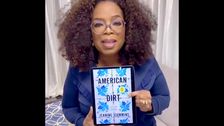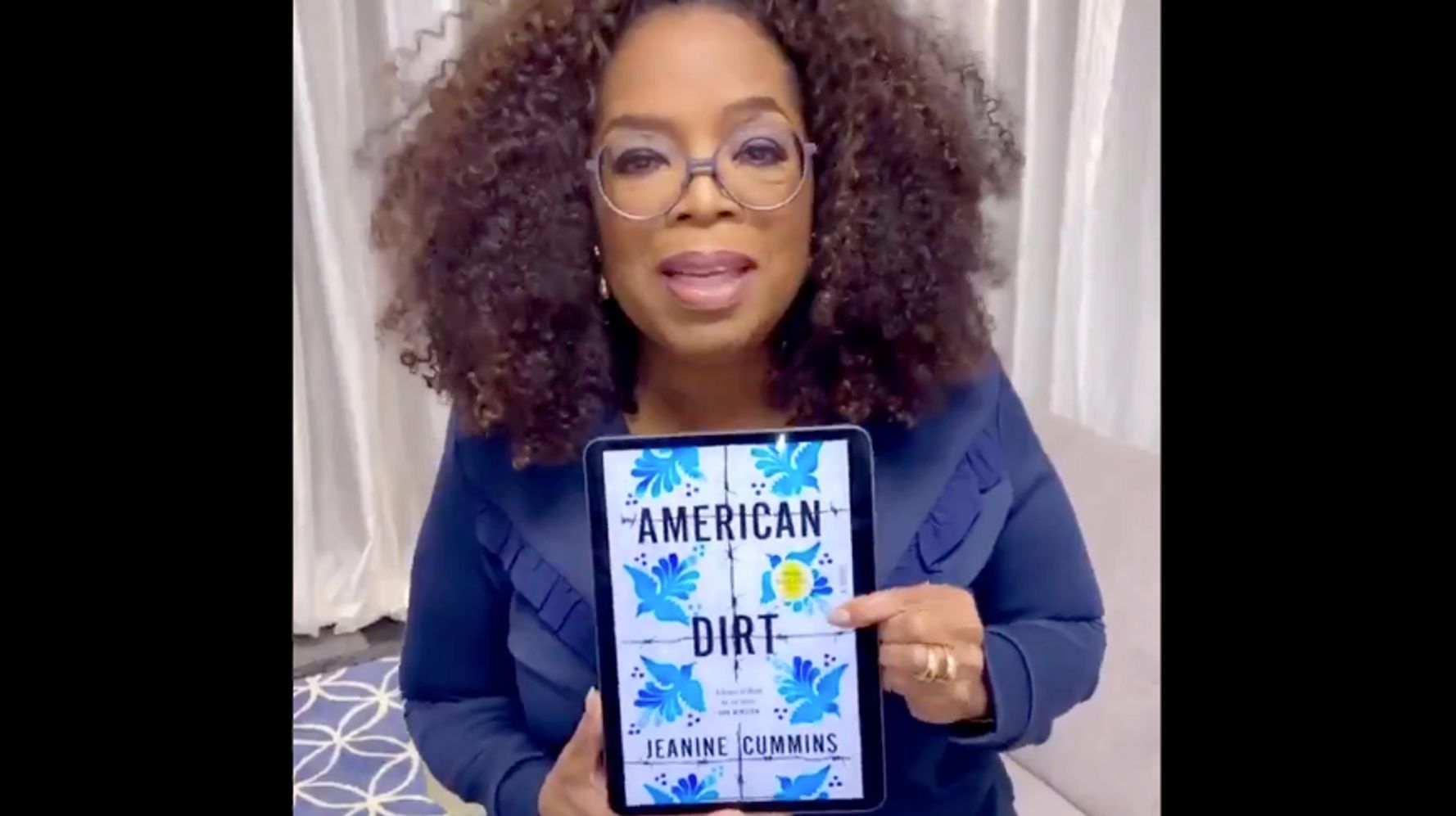[ad_1]

Oprah Winfrey’s latest Oprah’s Book Club pick, “American Dirt,” has social media and news outlets arguing over whether the book is an “extraordinary piece of work” or “cringeworthy” and “real problematic.”
On Tuesday, Winfrey touted the Jeanine Cummins novel as a story that “changed the way I see what it means to be a migrant in a whole new way.” In a video of her endorsement, the media mogul said, “I was shook up, it woke me up, and I feel that everybody who reads this book is actually going to be immersed in the experience of what it means to be a migrant on the run for freedom. So I want you to read.”
Considered one of the most anticipated books of 2020, “American Dirt” follows Lydia Quixano Perez, a woman who runs a bookstore in Acapulco, Mexico. When the boss of the city’s newest drug cartel becomes the subject of a tell-all profile by Lydia’s journalist husband, the couple and their son Luca find themselves on the run and become migrants.
The book has been praised by authors like Stephen King and John Grisham, while Lauren Groff hailed it in The New York Times as “propulsive” and “written with good intentions.” But many writers and book critics have said the book tells the story of a Mexican family through a reductionist, white lens.
According to many reviews, the book’s central problem is “brownface.” Some critics have drawn attention to Cummins’ identity (the author, who is of Irish-Puerto Rican heritage, describes herself on Twitter as “Irlandaisa/Boricua/Persona” but she has also identified herself as white) and are questioning the accuracy of her portrayal of Mexican immigrants.
“Latina or no, Cummins certainly isn’t Mexican or Chicana. That’s a problem,” writer David Bowles explains in a Medium post where he also calls the novel “harmful, appropriating, inaccurate, trauma-porn melodrama.”
Bowles’ take echoes much of what Latinx writer Myriam Gurba wrote in a piece titled, “Pendeja, You Ain’t Steinbeck: My Bronca with Fake-Ass Social Justice Literature” about Cummins’ novel. Gurba claims Cummins’ “clumsy and distorted spectacle” is another example of a white writer “appropriating genius works by people of color” and “repackaging them for mass racially ‘colorblind’ consumption.”
Writer David Schmidt noted in The Blue Nib that while the book takes place in Mexico, “anyone who has spent significant time in Mexico, however, will find this novel to be laughably inaccurate.”
An alternate New York Times review by Parul Sehgal described “American Dirt” as “conspicuously like the work of an outsider” and argued that Cummins “has a strange, excited fascination in commenting on gradients of brown skin.” (Sehgal added, however, that the “real failures of the book … have little to do with the writer’s identity and everything to do with her abilities as a novelist.”)
On Twitter, Los Angeles Times writer Esmeralda Bermudez, an immigrant who has covered Latino culture for more than 15 years, blasted the novel as a “cheap, stereotypical thrill”:
Cummins herself admitted to being hesitant to write “American Dirt” in August 2019.
“I was resistant, initially, to writing from the point of view of a Mexican migrant because, no matter how much research I did, regardless of the fact that I’m Latinx, I didn’t feel qualified to write in that voice,” she said in an interview with Shelf Awareness.
Cummins added that “because these are not my life experiences,” she “spent several years trying to write the book from a variety of perspectives, and all those perspectives failed. They were terrible. Because, ultimately, they were an inappropriate lens for the telling of this story.”
Developing the character of Luca was what changed the whole story and, ultimately, led to “American Dirt” getting published, Cummins said.
The novelist has not spoken out about the backlash on the book publicly, though she has been retweeting and liking praise she’s received for the novel on Twitter.
Calling all HuffPost superfans!
Sign up for membership to become a founding member and help shape HuffPost’s next chapter
[ad_2]
Source link

